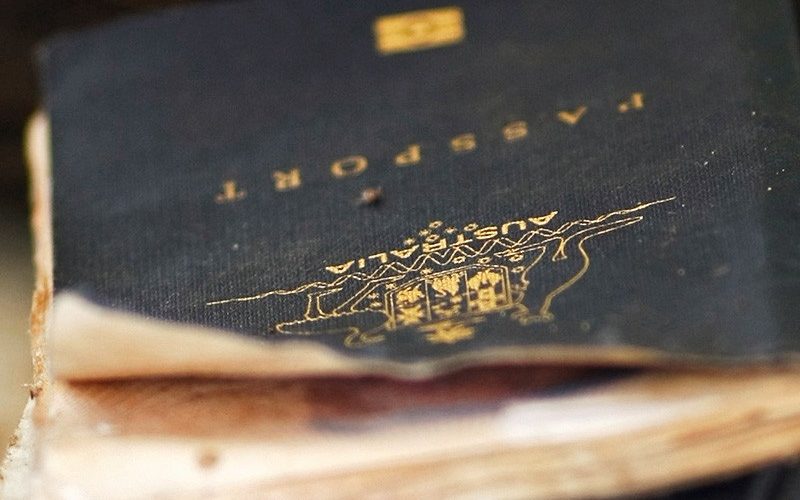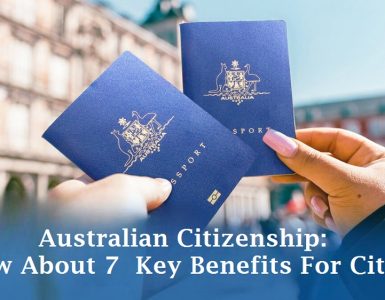Losing Australian citizenship is a significant and rare legal action, but it can occur under clearly defined circumstances set by law. Whether it’s the result of serious criminal conduct, actions inconsistent with national allegiance, or a voluntary decision, understanding the legal framework around citizenship cessation is crucial. This guide provides an exhaustive, up-to-date overview of everything you need to know.
Legal Foundation: The Australian Citizenship Act 2007
The Australian Citizenship Act 2007 is the core legislation governing how individuals acquire and lose citizenship. It establishes that Australian citizenship represents full and formal membership in the community of the Commonwealth of Australia, with associated rights and obligations.
The Act also requires the Minister for Home Affairs to report citizenship cessation cases to Parliament annually, ensuring transparency and accountability.
Court-Ordered Citizenship Revocation under Section 36C
Since the enactment of the Australian Citizenship Amendment (Citizenship Repudiation) Act 2023, only courts — not ministers — can revoke citizenship. This shift followed key High Court rulings that found ministerial revocations unconstitutional.
Under Section 36C, the court may revoke citizenship if the individual:
- Is at least 14 years old
- Holds dual nationality
- Has been convicted of one or more serious offences
- Receives a total sentence of at least three years
- Has demonstrated repudiation of allegiance to Australia
The court must consider:
- The rejection of democratic values and Australian social norms
- The scale, duration, and intent of the offence
- Actual or intended harm caused, especially to human life
Grounds for Revocation: Criteria and Offences
The Act outlines offences considered severe enough to justify revocation, including:
- Terrorism: Planning, supporting, or executing acts of terrorism
- Treason: Assisting enemies of Australia
- Espionage: Sharing or stealing sensitive national information
- Foreign Interference: Manipulating Australian political or governmental processes
- Mutiny: Promoting rebellion against lawful authority
- Foreign Incursions: Fighting for foreign or terrorist groups
- Explosives Offences: Unlawful use or possession of lethal devices
Each of these offences represents a fundamental breach of the mutual trust and allegiance expected between Australia and its citizens.
Historical Evolution of Revocation Laws in Australia
From 2015 to 2023, the Minister for Home Affairs could determine citizenship cessation under provisions such as:
- Section 33AA: Renunciation by conduct
- Section 35: Service with an enemy or terrorist group
- Section 35A: Conviction for terrorism or related offences
- Section 36B and 36D: Revocation due to conduct or criminal convictions
However, the High Court ruled in:
- Alexander v Minister for Home Affairs (2022)
- Benbrika v Minister for Home Affairs (2023)
that these provisions violated constitutional safeguards. These decisions led to the 2023 legislative overhaul and the current court-only revocation model.
Official Reports on Citizenship Cessation: Trends and Transparency
The Department of Home Affairs submits biannual and annual reports to Parliament, detailing:
- Number of revocations
- Legal bases used
- Demographic and offence patterns
These reports are publicly accessible and help ensure governmental accountability. For instance:
- 44 people lost citizenship under Section 34 (fraud or misrepresentation)
- 6 individuals lost citizenship for overseas involvement with terrorist groups
Voluntary Renunciation of Citizenship: Process and Requirements
Australians may choose to renounce citizenship, often due to acquiring another nationality. The process is designed to prevent statelessness and includes the following requirements:
Eligibility Criteria
- Proof of current or imminent foreign citizenship
- Identity verification (including certified documents)
- Completion of Form 128
- Payment of the applicable application fee
Step-by-Step Process
- Confirm eligibility and prepare documents
- Certify all identity and legal papers
- Submit the completed Form 128 and pay the fee
- Await a decision from the Department
- If approved, send original documents (citizenship certificate, passport)
Upon approval:
- If in Australia, the individual receives an ex-citizen visa, allowing continued residence but not re-entry without a new visa.
- If overseas, a valid visa must be obtained for return.
Special Considerations for Children and Parental Responsibility
Children under 16 may have their citizenship renounced via application by a responsible parent, subject to the same eligibility rules. The parent must provide:
- Evidence of their legal authority (e.g., custody orders)
- Full identity documentation for the child
- Completed identity declaration and recent photograph
Australia takes special care to ensure that minors do not become stateless through this process.
High Court Rulings That Reshaped the Law
The Alexander and Benbrika decisions by the High Court reshaped Australia’s approach to revocation by affirming that:
- Citizenship is a protected legal status under constitutional law
- Only a court of law can determine its cessation
- Executive power cannot override due process, especially where civil rights are at stake
By the Numbers: Citizenship Revocation Statistics Since 2015
Here are key figures highlighting the scope of citizenship loss in Australia:
- 44 revocations under Section 34 (e.g., fraud)
- 6 individuals lost citizenship for terrorist activity abroad
- Dozens of reports tabled to Parliament since 2015
Frequently Asked Questions
Can you lose your Australian citizenship if you were born in Australia?
No. Only dual nationals are at risk of revocation. Australia will not revoke citizenship if it renders someone stateless.
What is an ex-citizen visa?
A visa automatically granted upon citizenship renunciation from within Australia. It allows the person to stay but not to re-enter after departure without a new visa.
Can you appeal a citizenship revocation?
Yes. Judicial revocations can be appealed through the Federal Court or High Court.
How long does it take to renounce citizenship?
There is no fixed timeframe. Delays can occur due to incomplete documentation or identity verification.
Can children renounce their citizenship?
Yes. A parent or legal guardian must apply on their behalf. The child must also hold or be eligible for another nationality.
Is there a fee to renounce citizenship?
Yes. The fee must be paid with the submission of Form 128. Current rates are available on the Department of Home Affairs website.
What happens if the application is denied?
You’ll receive a letter detailing the reasons. You may then request a review through the Administrative Appeals Tribunal.
Conclusion
Citizenship revocation in Australia is a serious legal measure reserved for the most significant breaches of national trust, or for individuals choosing to relinquish their status voluntarily. Whether through court proceedings or personal choice, the process is governed by strong legal safeguards and judicial oversight. Understanding these procedures is essential for any dual national or individual considering renunciation.




















